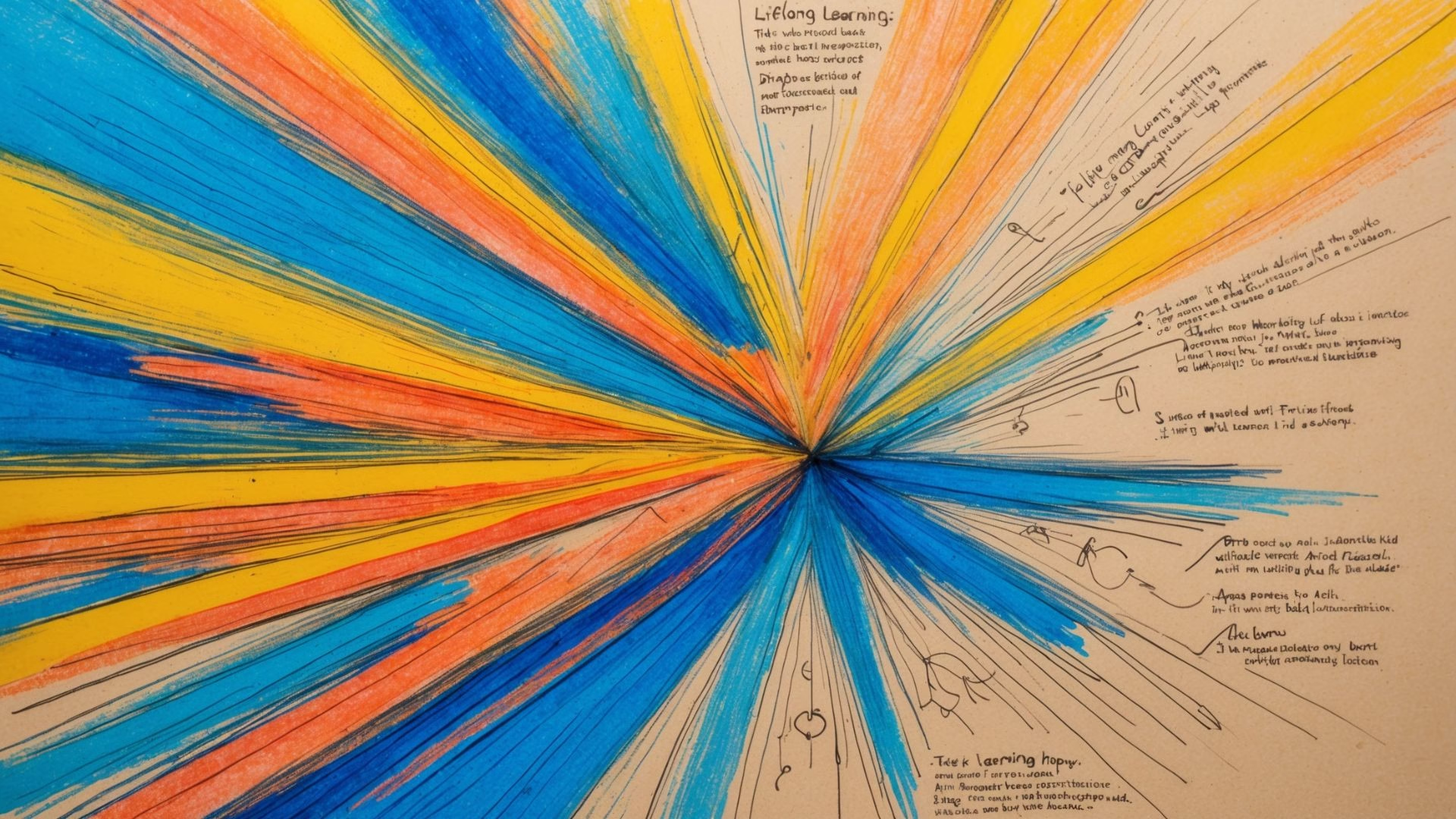Sharpen Your Skills: A Listening Practice on Lifelong Learning
Welcome to the final post in our listening practice series! Today’s topic is Lifelong Learning, a concept that’s incredibly relevant to you as a language learner. The skills and strategies discussed in the lecture are the very ones that will help you succeed on your exam and beyond. This type of listening passage, often found in exams like IELTS and TOEFL, focuses on personal development, education, or psychology.
Here are some targeted tips for this kind of lecture:
- Listen for Actionable Advice: The speaker will likely present problems and then offer solutions or strategies. Listen for phrases like “One effective strategy is…” or “To overcome this, you should…” These are key pieces of advice.
- Distinguish Between Concepts: The lecture might present contrasting ideas, such as a “fixed mindset” versus a “growth mindset.” Your task is to understand the definition and characteristics of each so you can tell them apart.
- Identify the Speaker’s Purpose: Is the speaker trying to inform, persuade, or motivate? Understanding their overall goal will help you interpret the main message. In a lecture like this, the purpose is often motivational.
You are about to hear a university workshop leader discussing strategies for continuous personal and professional development. Let’s listen.
Listen
Listening Quiz
Listening Transcript: Please do not read the transcript before you listen and take the quiz
Hello, and welcome to this workshop on what I believe is the single most critical skill for thriving in the 21st century: lifelong learning. In the past, education was often seen as a finite process. You went to school, maybe you went to university, you graduated, and then you were ‘done.’ Your learning was complete, and you would then apply that fixed set of knowledge for the rest of your career. In today’s world, that model is completely obsolete. The pace of technological and social change is so rapid that the skills that are in demand today might be irrelevant in ten years. The only way to remain relevant and adaptable is to commit to being a student for life.
So, what does it mean to be a lifelong learner in practice? It’s more than just passively consuming information. It’s about a proactive and intentional approach to personal growth. And the foundation of this approach is cultivating what Stanford psychologist Carol Dweck calls a “growth mindset.” Dweck’s research shows that people tend to have one of two core beliefs about intelligence. Those with a “fixed mindset” believe that intelligence is a static trait—you’re either smart or you’re not, and there’s not much you can do about it. When they fail, they see it as evidence that they lack ability.
In contrast, those with a “growth mindset” believe that intelligence and abilities can be developed through dedication and hard work. They see challenges not as threats, but as opportunities to grow. Failure is not a sign of incompetence; it’s a stepping stone—a source of valuable feedback that guides improvement. Adopting a growth mindset is the first and most important strategy. When you believe you can get smarter, you put in the effort that makes you smarter.
Once you have the right mindset, you can start building a system for continuous improvement. This involves both formal and informal learning. Formal learning is the structured kind you’re familiar with: taking a course, getting a certification, or attending a workshop like this one. It’s excellent for acquiring specific, well-defined skills. But informal learning is just as crucial. This is the learning you direct yourself. It could be reading books on a topic that sparks your intellectual curiosity, watching educational videos, listening to podcasts, or joining a discussion group. The key is to be consistently curious.
A common obstacle many learners face is the “learning plateau.” This is that frustrating stage where you feel like you’re putting in the effort but you’re no longer making any progress. You might experience this with a musical instrument, a sport, or even learning a new language. The way to break through a plateau is to change your approach. You need to introduce deliberate, targeted practice. Instead of just repeating what you already know, you must identify your specific weaknesses and create exercises to challenge them directly. It’s about practicing at the edge of your ability, which is uncomfortable but is where real growth happens. This process of growth is actually reflected in the brain’s neuroplasticity—its ability to reorganize itself by forming new neural connections throughout life. Every time you challenge yourself and learn something new, you are physically rewiring your brain.
Finally, let’s talk about the difference between upskilling and reskilling. These are two terms you’ll hear a lot in the context of the future of work. Upskilling is when you improve upon your existing skills to become better at your current job. For example, a graphic designer learning a new piece of design software is upskilling. Reskilling, on the other hand, is when you learn a completely new set of skills to do a different job. An assembly line worker learning to code to become a software developer is reskilling. Both are vital forms of lifelong learning. They allow us to adapt as industries evolve.
In conclusion, lifelong learning isn’t just a nice idea; it’s an essential strategy for navigating a complex and ever-changing world. It begins with fostering a growth mindset, is sustained by a blend of formal and informal learning, overcomes obstacles like plateaus with deliberate practice, and prepares us for the future of work through upskilling and reskilling. It is the path to continuous improvement, both personally and professionally.
Advanced Vocabulary and Phrases
- Lifelong learning: A noun phrase for the ongoing, voluntary, and self-motivated pursuit of knowledge for either personal or professional reasons.
- How we used it: The entire lecture was about lifelong learning and how to practice it effectively.
- Obsolete: An adjective meaning out-of-date, no longer produced or used.
- How we used it: The old model of education is considered obsolete because it no longer fits the needs of the modern world.
- Growth Mindset: A noun phrase, coined by Carol Dweck, for the belief that a person’s abilities and intelligence can be developed through dedication and hard work.
- How we used it: Cultivating a growth mindset was presented as the foundation for being a successful lifelong learner.
- Fixed Mindset: A noun phrase for the belief that a person’s abilities and intelligence are static, unchangeable traits.
- How we used it: A fixed mindset was presented as a barrier to learning, as people with this belief view failure as a final judgment on their ability.
- Intellectual curiosity: A noun phrase for the desire to learn, understand, and explore new things.
- How we used it: Informal learning is often driven by your intellectual curiosity about subjects that you find interesting.
- Learning plateau: A noun phrase for a period where a learner feels that they are no longer making progress in a skill, despite continued practice.
- How we used it: The lecturer discussed the learning plateau as a common obstacle and offered strategies to overcome it.
- Neuroplasticity: A noun for the brain’s ability to change and adapt as a result of experience.
- How we used it: The concept of neuroplasticity was used as scientific proof that our brains are built for lifelong learning.
- Upskilling: A verb or noun referring to the process of learning new, advanced skills to improve one’s performance in their current job.
- How we used it: The example of a designer learning new software was used to define upskilling.
- Reskilling: A verb or noun referring to the process of learning new skills so you can do a different job.
- How we used it: Reskilling was defined with the example of a factory worker learning to code to move into a new career field.
- Deliberate practice: A noun phrase for a highly structured form of practice with the specific goal of improving performance. It involves identifying weaknesses and targeting them.
- How we used it: The lecturer recommended deliberate practice as the most effective way to break through a learning plateau.










0 Comments